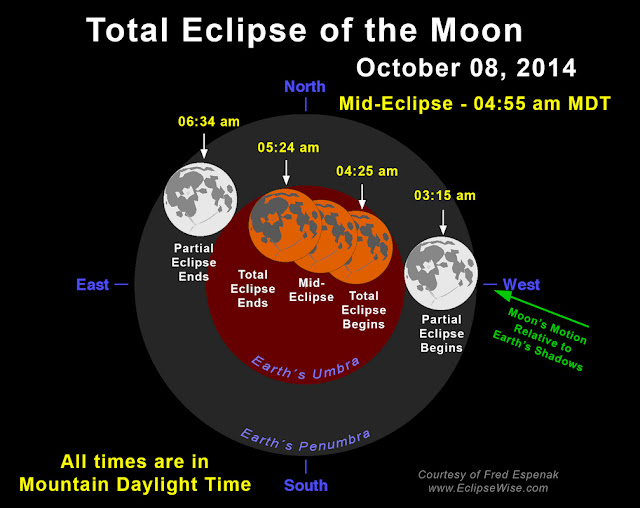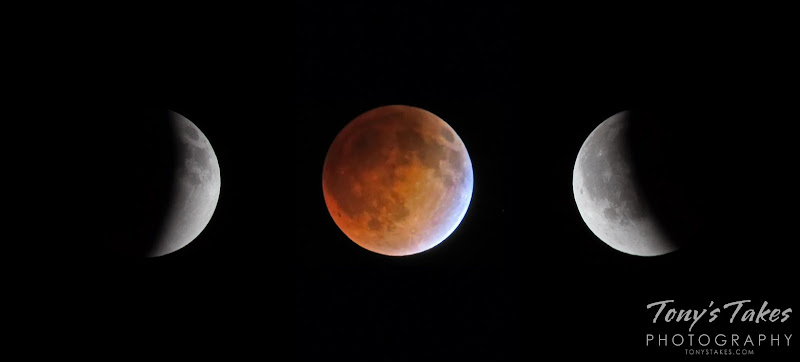
For the second time of the year, sky gazers will have the opportunity to witness a total lunar eclipse. This is in fact the second in a series of four consecutive total lunar eclipses, an event called the lunar tetrad.
Colorado and the rest of the western United States will have a front row seat to the celestial event occurring on the morning of Wednesday, October 8.
When and where to watch?
The partial eclipse begins at 3:15am MDT with totality starting at 4:25am. The moon will then be completely eclipsed for approximately one hour with mid-eclipse at 4:55am. The waning partial eclipse will end at 6:34am.
Anyone in the area with a clear view of the western sky should have no problem viewing the event.
When the event begins the moon will be about 40 degrees above the horizon. It will be sinking closer to the horizon as the eclipse progresses. At mid-eclipse, the moon will be 25 degrees above the horizon. When the moon emerges from the shadow of the Earth, it will barely be visible to the west as it sets.
Will Mother Nature cooperate?
Current models do indicate there will be some overnight cloudiness lasting into tomorrow morning as we see an increase in atmospheric moisture. Grids indicate 40% sky cover for the time period near mid-eclipse. The timing and location of those clouds may limit viewing a bit. The good thing is that we are expecting a mild night with temperatures right around 50 degrees in Thornton during the event. Click here to view the hour-by-hour point forecast for the latest.
What is the ‘blood moon’ and tetrad?

During totality, the moon will be rendered orange / red as the Earth’s shadow envelops the moon. Many are calling this a ‘blood moon’ but the meaning behind that term isn’t exactly clear.
As written on EarthSky.org, some attribute it to the lunar tetrad – four successive full lunar eclipses without any partial eclipses. Tomorrow morning’s eclipse is the second in the lunar tetrad with each full lunar eclipse coming six months apart.
The blood moon as it pertains to these eclipses should not be confused with the October full moon which is also referred to as a blood moon in folklore.
For more information:
